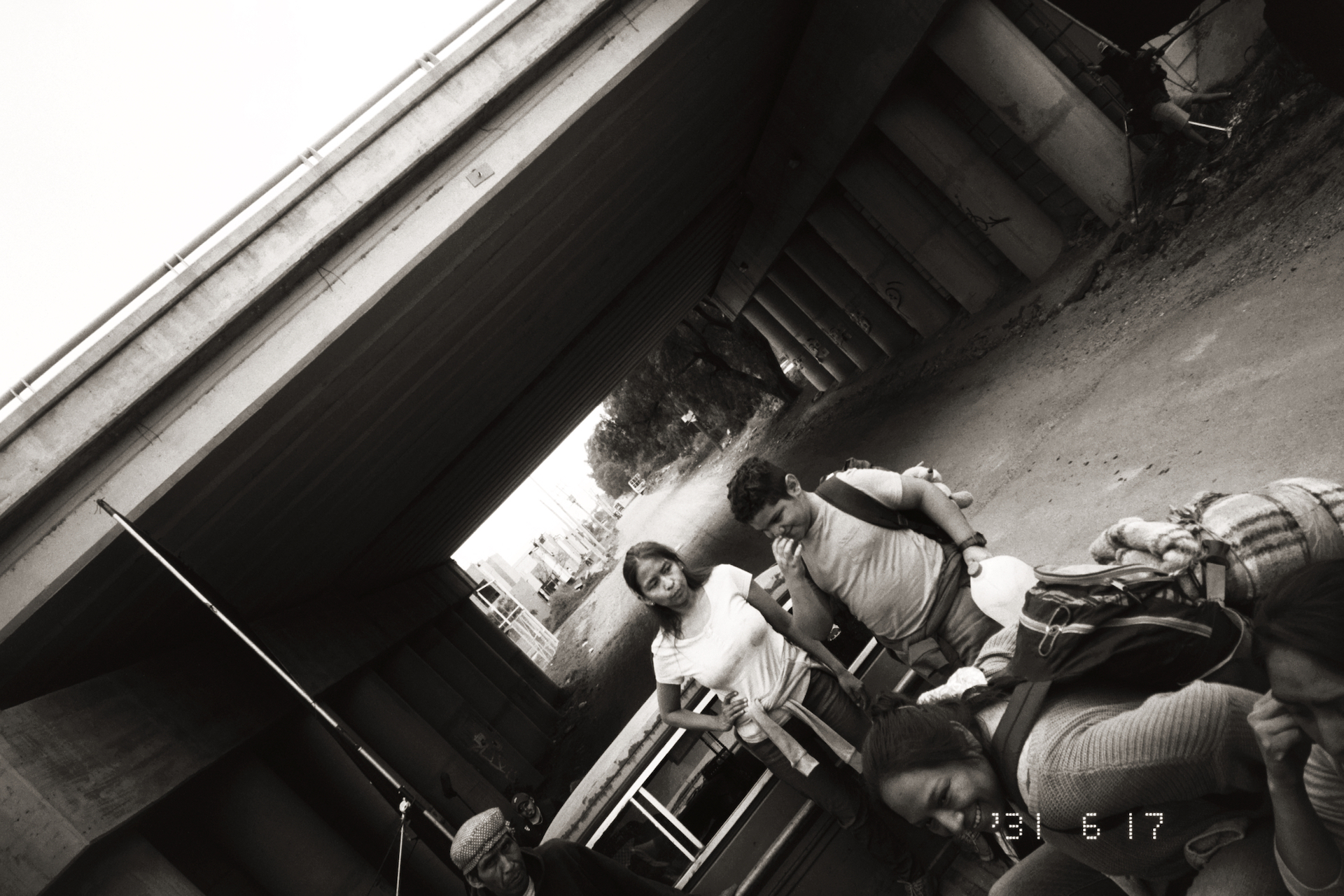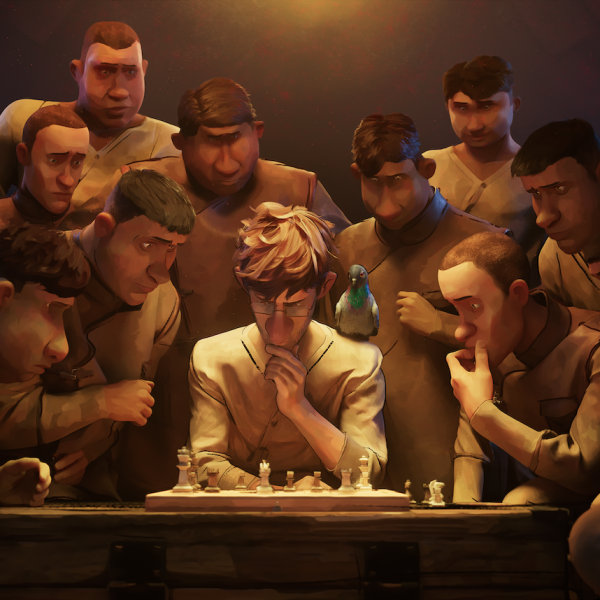“Separated,” from veteran documentarian Errol Morris (Oscar-winner for “The Fog of War”), is one of his best nonfiction forays, mostly because the filmmaker is angry and hits his points home. He’s showing us how cruel and inhumane the Trump administration was when they separated children and parents at the Mexican border in 2017 and 2018. Trump was forced to end the policy once it was brought to light by negative public opinion and the courts.
As disturbing as the film is, like too many worthy nonfiction films these days, “Separated” lacks a distributor. Because it’s based on NBC newshound Jacob Soboroff’s book “Separated: Inside an American Tragedy,” the movie was backed by NBC News. So you’d think streamer Peacock, or theatrical distributor Focus, might take it on. Not so fast.
It’s often a challenge to get an unfinished movie into a film festival, and Labor Day weekend’s Telluride feels a tad late for a film that ideally would be viewable before the election. “I would like them to step up,” said Morris. “Originally, the money came in part from NBC News because of Jacob. And then money came from Participant Media, when Diane Weyermann was alive. And then several unthinkable things happened. Diane died and Participant ceased to exist.” Actually, Participant is still working on the film, hiring Cinetic Media to handle press as well as Submarine to sell the film.
Morris wants people to see his movie as soon as possible, but selling and releasing films take time. “To say that I’m a little bit discouraged, would be an understatement,” he said. “Well, it’s not over. We’re working on it. We have not given up. Peacock is the solution. There are a lot of people that are just afraid of Trump.”
As always in the Errol Morris universe, the filmmaker likes to reinvent the form. “You have drama,” he said, “you have interviews, you have found footage, the most powerful material in the film are those kids screaming. ‘It sounds like we have a symphony orchestra, now we need to find a conductor, right, right?’ [referring to a horrifying moment in the film where an immigration official jokes about the kids screaming in their cages]. It’s the combination of journalistic material. A lot of this comes from not my reporting, but from the reporting of others. But a lot of the emails comes from the research that we did.”

Morris read Soboroff’s book early on and when the NBC journalist called, he told him he wanted to make a movie. While the movie doesn’t follow the book, it does take from it the composite central story of a Guatemalan woman and her teenage son making the arduous trek to the U.S./Mexico border, where they are detained and separated. “It’s based on fact,” said Morris, “if you like, bits and pieces from so many diverse sources,” including Soboroff, and NBC was helpful with the archives. “You have a sandwich of interviews and drama, that are separate, although they relate to each other.”
The movie is emotionally moving, “which is certainly a byproduct of the story,” he said. “It’s not a feel-good movie, it’s horrible. It’s a feel bad story. I always cite William Blake’s ‘Songs of Experience’: ‘Cruelty has a human face.’ And what really annoyed me Is the dishonesty among many people in the Trump administration. [Homeland Security Secretary] Kirstjen Nielsen telling you ‘we’re just following the law. That’s all we’re doing. You wouldn’t want us to break the law, would you? We’re just following the law.’ Well, there’s following the law and there’s following the law, and here there were deep moral questions about separating families.”
“They’ll say it’s for the purpose of deterrence,” he said. “We’re going to send a signal to people in Central America who might be thinking of making the trek north to the Mexico/U.S. border. And this will tell them what they’re facing if they choose to make the trip and choose to cross the border. I don’t even believe that. I believe there’s some deep satisfaction that comes from just plain garden variety meanness and cruelty. Is this Fascism in some form, if Fascism is demonizing other people. Well, yes, it is.”
Morris thinks about what it means to be a Jew. “Any Jew who’s familiar with the history of World War II, engraven in my memory, is the boat turned back filled with Jewish refugees trying to escape from the Third Reich, rejected by the US, sent back to the concentration camps. Certainly, I’m the product of immigration. In fact, almost everybody in America is. And to hear these people described as murderers, rapists, drug traffickers! As if the whole problem of immigration comes down to criminals, which it does not.”

And as usual he finds a visual motif to repeat over the film, slats in the border wall. “It seemed clear for a while that it was a crazy kind of zoetrope,” he said. “We built zoetropes and filmed them in a studio in Mexico City.”
As ever, Morris returns to the Interrotron for his in-depth interviews — the ones he was able to get. “Lots of people refused to talk to me,” he said. “In some instances they had an excuse, because they still work for the government. The people that offend me, I probably shouldn’t openly say it, but Kirstjen Nielsen, who I talked to on the phone, I don’t know how many times she refused to be interviewed on film. Very, very weird. Tom Holman, who is head of ICE under the Trump administration, agreed to an interview. He had to travel an hour to a studio south of Boston, where we were filming. And he arrived at the studio and then sat in the green room for two hours, refused to appear before the camera.”
Actually, Jonathan White was not obliged to talk to Morris, “but he essentially broke the rules,” he said. “Thank God, and talked to me anyway. He’s my gift. He’s my hero.” White, who is Director of Community Mitigation and Recovery at U.S. Department of Health and Human Services (HHS), spoke to the filmmaker over two interviews for five hours. What White delivers is a moving call for morality. “Call it the Kantian element, the ethical element, on the simplest possible terms, the element of right and wrong,” said Morris. “Were these policies wrong? Yes. Were they horribly injurious to children? Yes. Is the worst of it, the fact that they instituted these policies, or is the worst of it that there was even an effort to hide records or to keep no records?”
That’s why almost 1,000 parents and children could not be reunited. “They created a situation where the records are paltry or non-existent,” said Morris. “At the heart of this film, is not so much a migrant story, but a story of a bureaucracy and an administration. What amazed me is that separation started almost as soon as [Trump] assumed the presidency. They became known over a year after that, but they were called the El Paso pilot program. They were separating families from the very, very, very, very beginning, and denying it, denying that they were doing it, because they realized that these policies were wrong or embarrassing or politically problematic.”
Scott Lloyd, the director of the Office of Refugee Resettlement, within the U.S. Department of Health and Human Services, was another matter. Morris was convinced he had conducted the worst ever interview. But his editor managed to make it work. “Here’s another issue that fascinates me,” said Morris. “What is the difference between the honest to god obtuse and the intentional obtuse? He pretends to understand nothing, and maybe he doesn’t understand anything. It’s quite possible. Where does a bovine-like intelligence end and real attempts to cover up and hide begin? I don’t know.”


